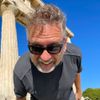Week 61 - Corinth and 100 days aboard
Corinth, bad weather and finally new horizons! Adventures in Greece cruising the Mediterranean on our boat Matilda.
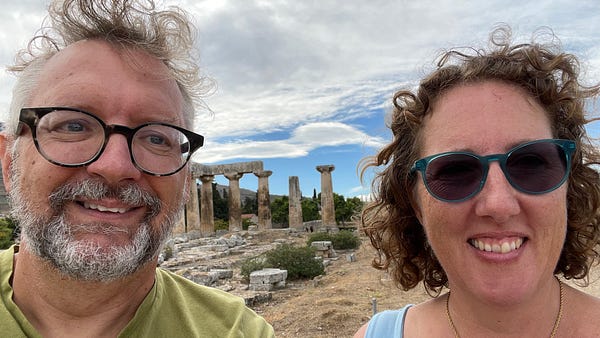
Corinth, bad weather and finally new horizons! Adventures in Greece cruising the Mediterranean on our boat Matilda.
Today marks 100 days since Matilda went into the water and we’ve been living aboard. As we reach this milestone, I’ve been thinking a lot about how important it is to be able to trust your equipment. This week has seen some more extreme weather (for us) and throughout it all we felt fairly relaxed (alert, but not alarmed) because as we’ve slowly gained experience we know how well our anchor holds and what to expect from it in different conditions.
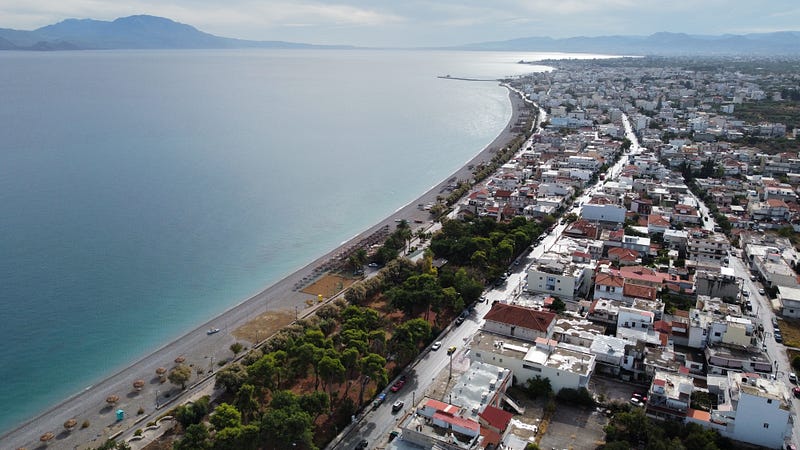
It’s a good feeling after all the stop and start moments settling the boat in to feel confident that the anchor windlass works properly, that you can haul in the anchor if you need to and that the navigation systems all work well. That doesn’t mean everything is perfect, on the contrary, there’s an ever growing list of “niggles” that need attention — but with experience we’re more relaxed about these. The great enemy of “doing” is perfection — knowing when you need to stop and chase down a repair is important, but also recognising that there’s more out there to explore that we’ll never see while we chase an endless list of “things to do”. For the record, the big items on the “not working” list right now:
- Freshwater tank continues to leak, however it’s slow and the only real issue is when it’s very full, it triggers the bilge pump several times a day. As we use the water, the leak slows and it’s fine. We’re not going to run out of water.
- The sensor in the sewerage tank is stuck. I could probably fix this, but it involves opening the sewerage tank to clean it and I’m happy enough to live without it working — turns out that now we know we have 7+ days of storage on board, emptying it every 5–6 is a satisfactory (and less smelly) solution for now.
- Stern Thruster control panel on the Flybridge stopped working. Suspect it got wet during the storms. Will probably swap the control for the one at the main helm as a temporary given we use it from the FlyBridge most frequently.
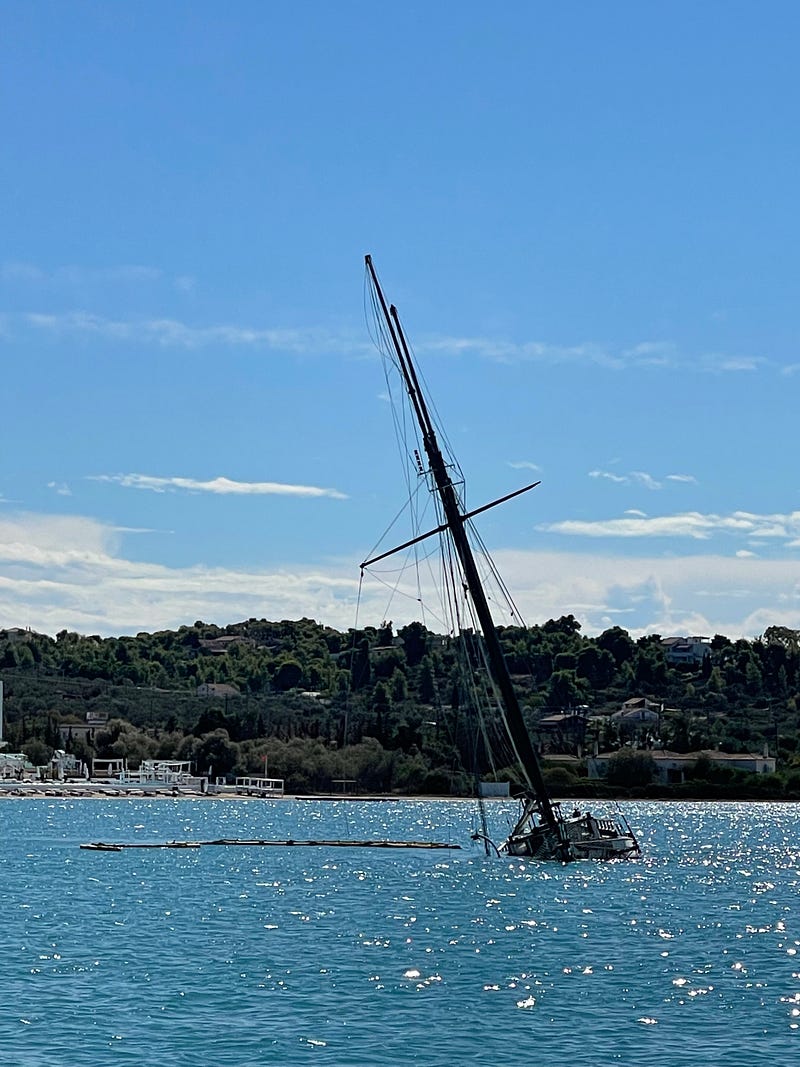
In general though, what experience has taught us is that we have a very solid, reliable boat for the things that matter and are critical. The hull is sound, she handles well in difficult seas, the anchor and chain are well set up and the motors are reliable and get us from A to B without skipping a beat. We can go, we can stop and we get there safely. Outside of that, there are a myriad of “convenience” systems on a boat — they certainly make life easier, but these are what seem to play up all the time. Learning when it doesn’t need fixing right NOW is a valuable skill. Anyway, if you wanted convenience, then living aboard full time probably isn’t the right choice for you!
On Sunday we headed to Corinth, yet another of the myriad ruins in Greece and one that’s very impressive both in history and scale. It’s broken up into two sections — Ancient Corinth, which is the older, original part and then Akro Corinth, which is the settlement on top of the huge Acropolis that was inhabited right up until the 19C. For the biblically inclined, one of the claims to fame here is to visit the house that St Paul stayed in — I’d never really thought about it to be honest, I’m passingly aware there’s a section or two in the bible called “Corinthians”, but I hadn’t put the obvious together which is that St Paul lived here, and later, was writing letters to the fledgling church with advice.
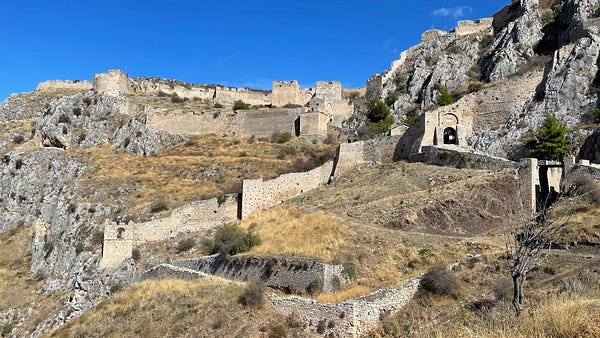
On Monday we visited Nemea on our way back to Porto Heli. It’s an interesting wine region in Greece and one we’d like to explore further. There’s also another ancient ruin there! Of course… we didn’t get to see it this time, but one day, we’ll possibly knock over Ancient Nemea as well.
Having returned to Porto Heli, we met the mechanics for the last step in the upgrades, the sea trial. This involved taking Matilda out for a run to align the compasses and adjust the radar etc. All went smoothly and finally the upgrades are done!
We decided to anchor out in Porto Heli for a change (cheaper) and after dropping the mechanic back at the dock, headed to an anchoring area. As we pulled in, a couple on another boat started waving at us. It turns out it was Markus and Isa that I’d met the week before when I took a photo of their boat Tara with a drone and gave it to them. We’ve come to realise that Matilda is a bit like the Mini Moke that we used to drive (a throwback for people following from Alphington), impossible to go anywhere without everyone recognising who you are! We’re definitely a unique boat in the neighbourhood.
Markus and Isa joined us for drinks onboard and we had a lot of fun chatting with them. They’ve been living aboard full time for the last 18 months and Karina asked what advice they had for relative newcomers like ourselves. It was interesting. Markus pointed out the importance of social contact, go out of your way to meet new people, chat with them, share a drink — it’s easy to go stir crazy inside your own boat with just the two of you all the time. Isa’s advice was the challenge of trusting the captain, the importance of one person taking responsibility for decisions and being “in charge” when it comes to the boat underway.
Of course the other topic of conversation was the weather! I’ve yet to meet another sailor where the weather wasn’t the primary topic of conversation. We were all looking out to Thursday and Friday which were shaping up for the first major storm of the season. Conditions were such that it could yet tip into a “Medicane” (Mediterranean Hurricane) although that was a low probability, it was also going to be rough either way. As you know doubt know by now, the answer was, stay in Porto Heli.
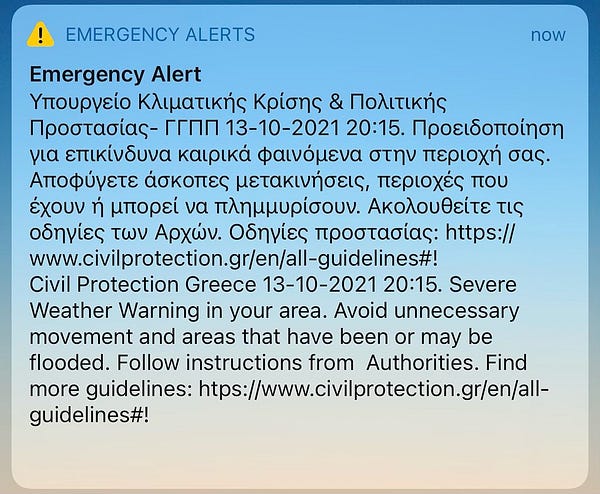
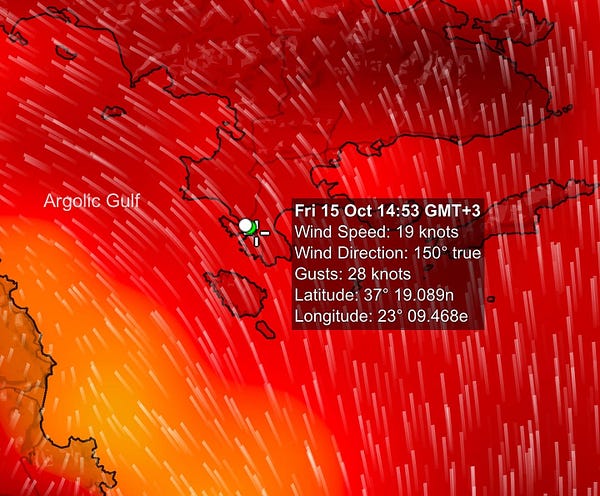
Wednesday was nice however so we decided on a quick day trip to the far side of Spetses and the Bektiri Sea Cave. The story behind the cave is that during World War II a group of resistance fighters were hidden in the cave by the locals. When the Nazis challenged the villagers to reveal there location, they refused to give them up and the Nazis executed all the men in the village as punishment.

The water was clear and still quite pleasant (24C) and although it felt a little cool to swim, it was very nice when you hopped in. I took the paddle board and then swum into the cave which was a very eerie experience. The distance between the water and the roof at the entrance was only about 50CM, but once you were inside it opened up into a big domed area with a small beach that could also be accessed from the shore. An interesting experience.
We then returned to Porto Heli and tied up on the public dock. We made sure the anchor was set well and then spent a bit of time playing with the ropes to make sure we were tied down securely. There was a general sense of anticipation on the dock. Everywhere (except one spot next to us) was full by Wednesday evening, everyone was checking and double checking their lines and everyone was looking at the forecast.
At 2.30AM Thursday morning I was woken up by something bumping the boat. I looked out and there was a huge catamaran trying to force his way in beside us, and had hit us in the process. My initial reaction was to tell him in no uncertain terms he couldn’t fit and to get lost. The captain was patient however (and a little stubborn)! He explained they’d been travelling for 22hours to escape the storm, they really needed to dock, and if we could just loosen our lines he could squeeze in.
It wasn’t what I wanted to do, but after I cooled down I really had to ask myself, if I arrived somewhere in the dark, under pressure from a storm, would I want the person already there to help me tie up safe? The answer of course was a resounding yes — so we fired up the engines, untied the lines and were able to move sideways enough for him to just squeeze in beside us. In the morning we weren’t proud of our immediate reaction the night before, although I think it’s understandable (being shaken from your sleep by things that go bump), but ultimately they were understanding and I think the lesson here really is being part of the community and willing to take that step to help out.
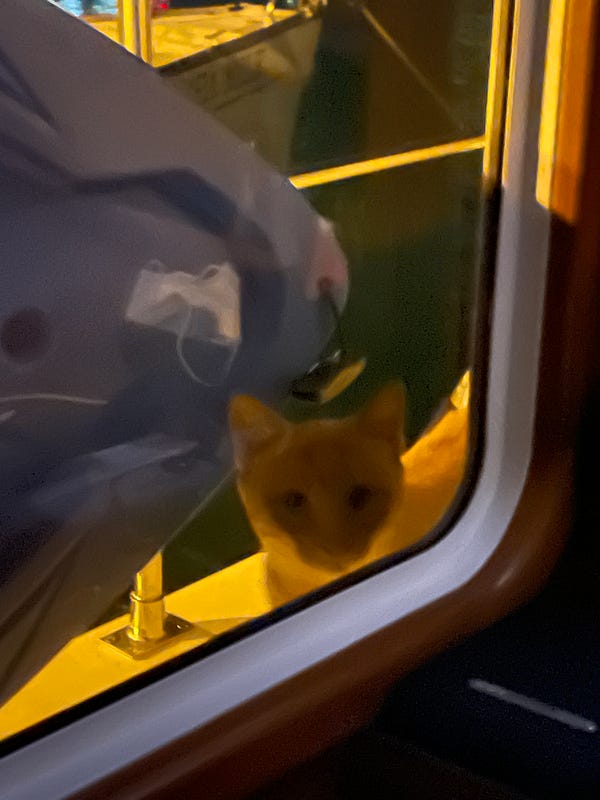
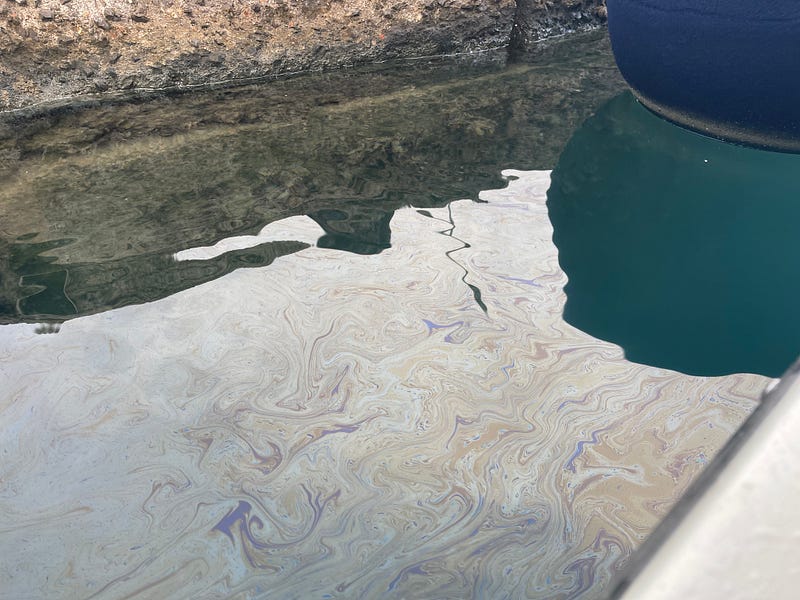
The weather was a big deal across much of Greece, but it turns out that on a boat flooding isn’t a major issue! Athens was hammered, train lines flooded and at least one person died. Some of the regions that experienced the major fires also had a lot of difficulty with landslides, roads washing away and so forth.
Even though we experienced the heaviest winds we’ve felt to date, the boat didn’t move at all and our new very large catamaran neighbour also helped shelter us. We felt secure the whole time which was great.
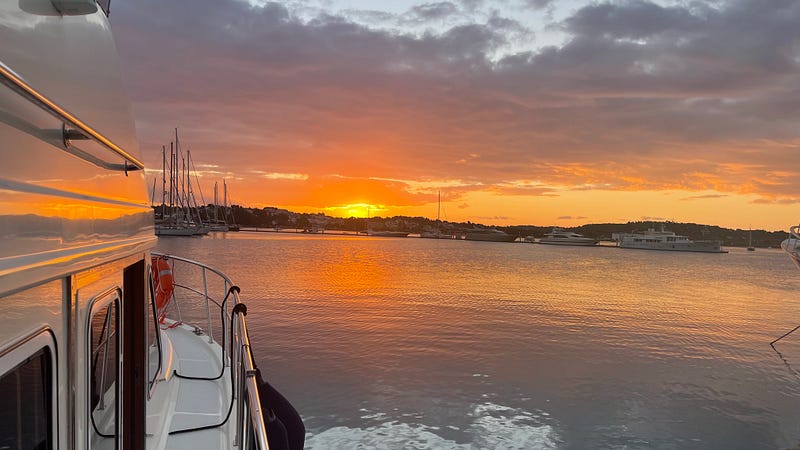
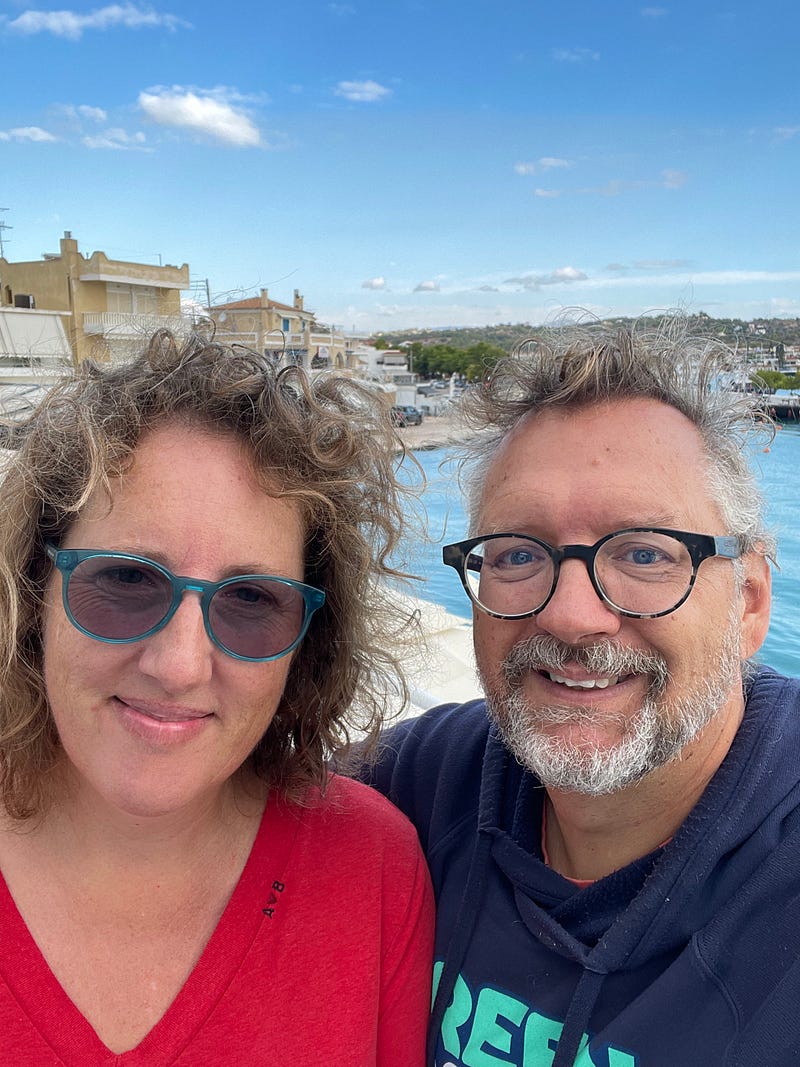
Saturday morning we headed to Poros to overnight there as FINALLY this week we are on our way to the Saronic Gulf. As I write this we in the Saronic (having left Poros this morning), Karina is piloting Matilda and we are between Methana and Agistri, heading for Vathy. For the first time in weeks we are somewhere completely new!
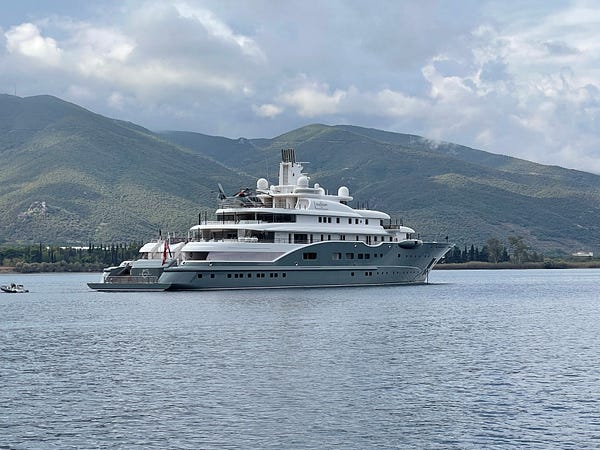
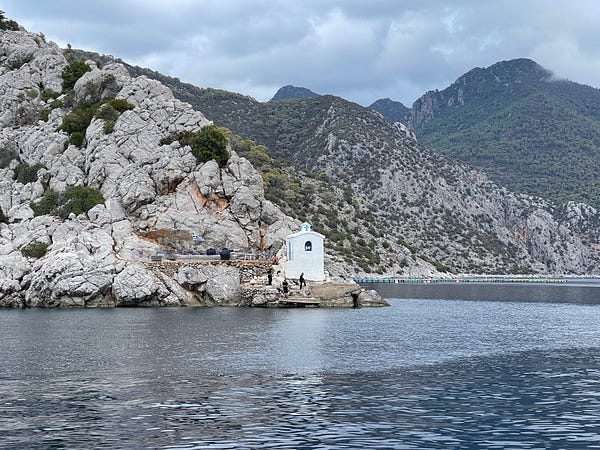
Want to see where we are now? Check us out on NoForeignLand https://www.noforeignland.com/boat/matilda
Until next time,
Tim and Karina
